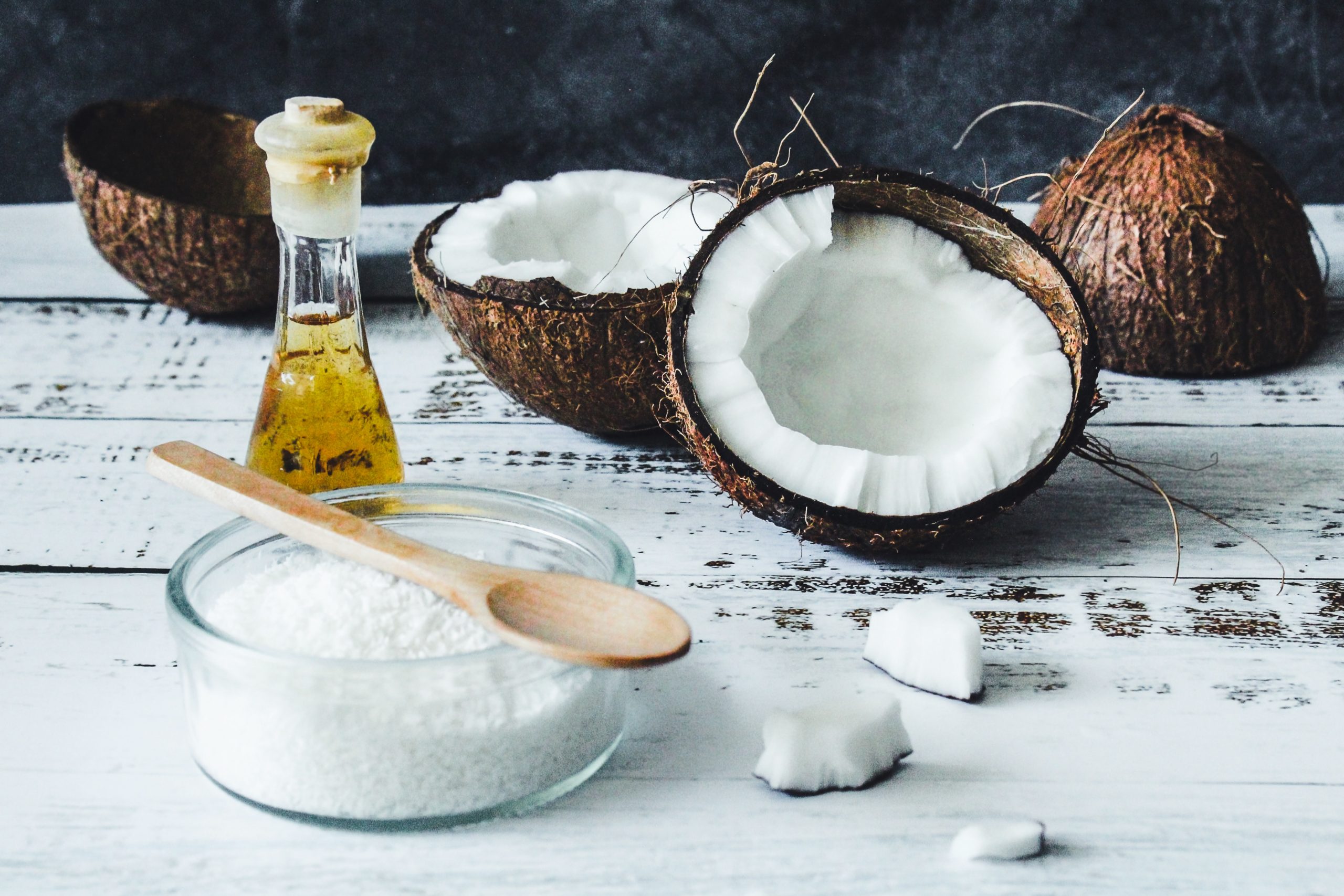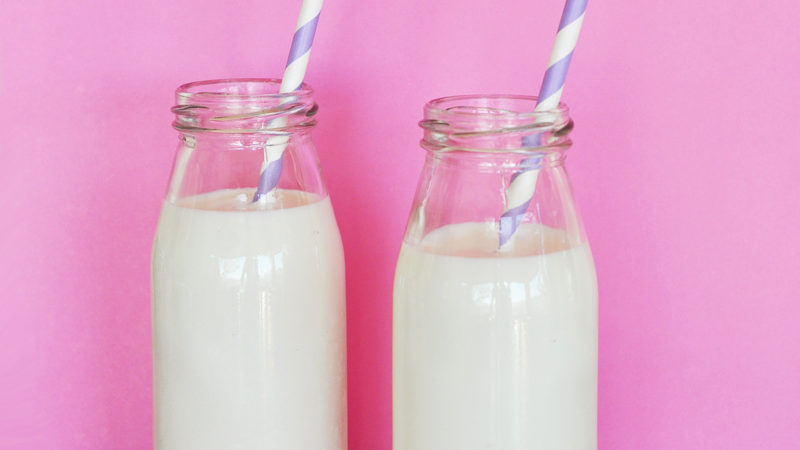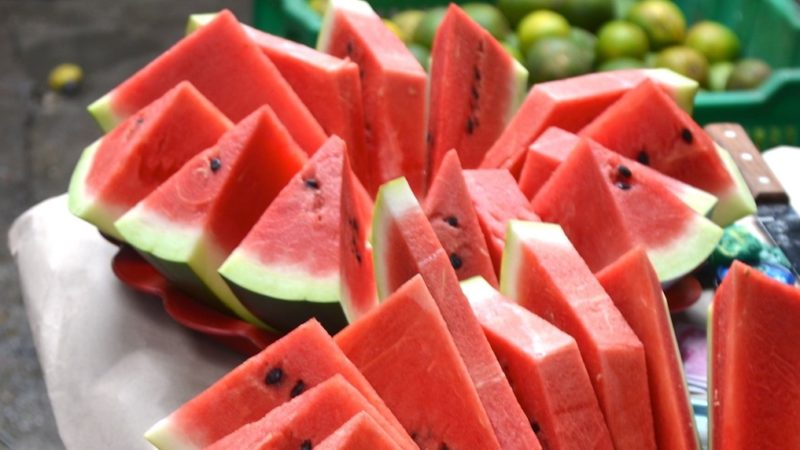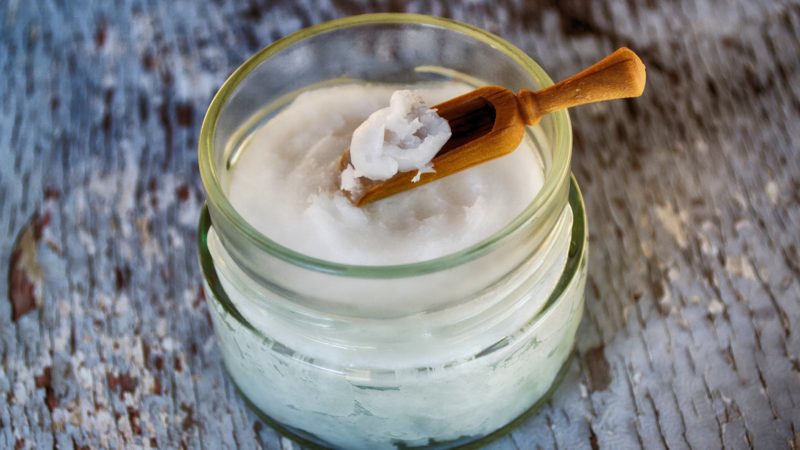Dairy Substitutes – Non-Dairy Alternatives for Common Dairy Products

Dairy products play an essential role in the diet of every person. They provide a wide range of health benefits as they are packed by nutrients like phosphorus, calcium, potassium, B vitamins, and vitamin D. If you can not consume dairy products, here is an article with a list of dairy substitutes that you can include in your diet.
People are moving towards dairy alternatives due to a wide range of reasons, including health issues, better health, or to reduce their impact on the earth. One issue that people face when they give up dairy products is how to replace dairy products. Below mentioned are some healthy substitutes for common dairy products.
Reasons to Opt for Dairy Alternatives
A number of dairy products are made from the milk of sheep, goats, and cows, including milk, butter, ice cream, and cheese. In this article, we present a guide to the best substitutes for dairy products. But before exploring the substitutes, let’s have a look at the reasons for replacing dairy products.
- Lactose Intolerance – 75% population of the world’s population face the issue of lactose intolerance (Source). The main cause is that their bodies do not produce enough lactase. It is an enzyme that is required to digest milk sugar lactose. The symptoms include gas, diarrhea, and bloating (Source).
- Milk Allergy – Many kids have a milk allergy. It leads to a wide range of symptoms like upset stomach and hives. Many kids outgrow this issue as they grow.
- Potential Contaminants – Some people opt for forgoing dairy products due to issues over potential contaminants that are present in dairy products, including antibiotics, pesticides, and hormones.
- Vega or Ovo-Vegetarian Diet – Vegan diets do not include dairy products. Ove-vegetarians include eggs, but no dairy products. There are some vegetarian products that also exclude dairy products.
Dairy Substitutes for Common Dairy Products
Whatever is your reason for giving up the dairy products, the best part is that a wide range of dairy substitutes are available in the market.
Milk Substitutes
Milk has various uses like it used as a beverage, added to cereal, or smoothing and is also used for baking. It is loaded with a wide range of nutrients like calcium, carbs, and protein. One cup of whole milk provides 8g fat, 13g carbs, 8g protein, and 146 calories.
A wide range of milk alternatives is available in the market. You can make milk from plants like legumes, cereals, seeds, nuts, or other grains. Some plant-based milk products are fortified with vitamin D and calcium in order to make them similar to dairy milk. Some milk alternatives are also fortified with vitamin B12.
Below mentioned are some common alternatives to cow’s milk.
Almond Milk
It is a famous alternative to milk as it is easy to buy, easy to make, and many people also find it delicious. One cup of almond milk is loaded with around 39 calories, 2.5g fat, and 1g protein.
Almond milk does not contain a strong flavor like other plant-based milk products, so it might be a good product for you if you are a starter.
Coconut Milk
Coconut milk is fatty due to which it has the same texture as cow’s milk. One cup of coconut milk is packed with 74 calories, less than 1g protein, and 5g fat. The creamy texture makes it perfect for adding to coffee.
Rice Milk
Rice milk is sweeter as compared to other dairy products. It is also more watery but is available in different varieties. One cup of rice milk contains 113 calories, 2g fat, and 1g protein.
Soy Milk
If you are intolerant to dairy products, soy milk is a perfect choice for you. In case you are looking to cut calories, then also you should opt for soy milk.
One cup of soy milk contains around 7g protein, 80 calories, and 4g fat. It comes in both sweetened and unsweetened varieties, which allows you to try different options.
Other Alternatives
Other non-dairy alternatives for milk include:
- Hemp milk
- Cashew milk
- Oat milk
- Flax milk
Butter Alternatives
A wide range of butter alternatives is available in the market. Here are some dairy-free replacements of butter.
Olive Oil
Olive oil is one of the best dairy alternatives for butter. It can be used for sauteing a food. You can also use it caramelizing.
Coconut Oil
If you are looking for dairy substitutes for butter, then coconut oil is another popular choice. If you want to neutralize the coconut flavor, heat the oil and add a little bit of salt to it.
Bananas
You can use a ripe banana to replace butter in sweet recipes. Keep in mind that bananas can also change the flavor of the food.
Avocados
Avocados are an amazing choice for replacing butter. You can use it in many baking recipes. The flavor of avocado dissipates and leaves only a fatty and creamy texture, which is perfect for baked goods.
Alternatives for Cheese
There are two main categories of dairy cheese: soft and hard. Cheese is made by fermenting milk of cow, sheep, or goat with bacterial cultures. Then the mixture is rented, or acid is added to it to form curds. After this, salt is added, and curds are shaped and stored.
Dairy cheeses provide a wide range of nutrients, including calcium, fat-plus sodium. And protein. Some varieties of cheese are high in sodium as compared to others.
Substitutes of Soft Cheese
It is easy to replicate the flavor and texture of soft cheese. You can get nut-based and soy-based versions of cheese in the market. In fact, gluten-free, soy-free, and dairy-free versions of cheese are made from a blend of tapioca starch vegetable oils and a pea protein isolate.
You can also make non-dairy cheese at home using macadamia nuts, almonds, cashews, or Brazil nuts. If you are looking for dairy-free cottage cheese or want to mimic the texture of ricotta or cottage cheese, then you can use crumble soft tofu.
Substitutes of Hard Cheese
It is difficult to find a replacement for hard cheese. Casein (milk protein) provides the cheese with the ability to stretch and melt. Manufacturers have to use different proteins, gums, and fats in order to attain similar melting properties and mouthfeel.
Most brands use nuts or soy protein as a base, but nuts or protein are also used as a base. Some nut-free and soy-free varieties are made from vegetable oils and are mixed with pea protein and pea starch.
You can also make hard cheese at home by processing nutritional yeast and nuts with desired spices.
Yogurt Replacements
Dairy yogurt is a perfect blend of milk, bacteria, and lactic acid. The same process applies to dairy alternatives for yogurt. Many manufacturers use cultured soy as a base for making yogurt, while others use bases like coconut milk.
Plain yogurt is a versatile food. You can use it as snack food and breakfast, in salad dressing, marinades, and dips. It can also be used to accompany roasted vegetable dishes and meat.
One cup of yogurt contains 8g fat, 11g carbs, 9g protein, and 149 calories. Non-dairy substitutes of yogurt are made from seeds, nuts, soy, and coconut. They are usually high in carbs due to added sugar.
Nutrition content in different non-dairy yogurt can vary widely. You can also buy a yogurt-making kit in order to make your own dairy-free yogurt. You can reuse the live bacteria culture to create new batches.
Cream Substitutes
The cream is a top layer of high fat that is made from separated fresh milk. It can have 10% to over 40% fat, and the amount of fat depends on the type cream that is being created; light cream, heavy cream, whipped cream, and half-and-half cream.
The cream uses include topping in savory or sweet dishes. It is also used as an ingredient in soups, custards. Puddings, sauces, and cakes. Half-and-half and light cream uses also include in coffee and other beverages.
One tablespoon of heavy cream contains 5.6g fats and 52 calories. A wide range of dairy-free cream substitutes is available in the market.
Non-dairy alternatives to cream are made with cashews, soy, and nuts or by blending vegetable oil. Usually, non-dairy creams are low in fat and calories as compared to the dairy versions. Vegan versions do not contain protein, but some versions contain carb.
Some dairy substitutes are highway processed, and they might contain ingredients such as partially hydrogenated oils or high-fructose corn syrup, which contain trans fat.
Therefore, it is better to try homemade substitutes made from whole foods like almonds.
Alternatives for Sour Cream
The process of making sour cream includes fermenting milk with bacteria. You can use the cream as a topping, a moisture-providing ingredient, and a base for dips. Around 28 grams of regular sour cream contains 54 calories, 5.5g fat, 1g fat, and 0.6g protein.
Dairy substitutes present in the market are soy-based. However, soy-free brands make the products from the blend of beans, gums, and oils.
Some alternatives to sour cream contain similar amounts of calories and fat. On the other hand, other dairy substitutes are lighter, and they contain fewer calories and fat.
Ice Cream Alternatives
Ice cream alternatives are a must to include in the list of dairy substitutes. The best thing is that there are various options for non-dairy ice cream.
Sorbets – They do not have dairy products. Keep in mind sorbets and sherbets are two different products. Do not confuse as sherbets contain dairy in them.
Creamy Ice Cream – The one made from non-dairy milk is also a suitable choice. The ingredients include soy milk and coconut milk.
Homemade Ice Cream – You can make the ice creams by blending frozen bananas and adding other flavorings such as berries.
The procedure of making most popular types of ice cream substitutes includes the use of almond, soy, and coconut milk. You can also purchase products made from rice, cashew, and even avocados.
What to Look for in Dairy Substitutes
A wide range of dairy alternatives is available in the market, making it easy to find the replacement of any non-dairy food you are looking for.
Added Sugars – A wide range of dairy alternatives contains added sugar in order to improve the texture and flavor. In some products, sugar content is similar to that or regular dairy products; however, it can be higher in others. Make sure to check the sugar content before purchasing the products.
Protein Content – Dairy yogurt, milk, and cheese provide complete protein. However, when it comes to dairy substitutes, only soy mimic that level of quality and protein.
Fillers – Non-dairy products like yogurt and cheese contain a variety of additives to enhance the texture and quality of the product. They are not necessarily good for health, so many people opt for natural products.
Intolerance – Some people have allergies to or intolerance to some types of ingredients like nuts or soy. Fillers like insulin can also be difficult to digest for some people as they cause gassiness.
Nutrient Content – Dairy products contain calcium and potassium. Fortified dairy substitutes can also provide these and other micronutrients. The nutrient quantity completely depends on the brand. On the other hand, non-dairy homemade products can not be fortified.
Price Differences – The only drawback of non-dairy products is that they come at higher prices. You can also take it as an incentive to make dairy substitutes at home.
Always make sure to read the labels to find out the ingredients present in the dairy alternatives. Non-dairy products of different brands contain different nutrient composition.
Final Words
A wide range of dairy substitutes is available in the market. You can make mom dairy alternatives to ice cream, cheese, and more at home. You can also find them at grocery stores.
Most of the dairy substitutes are made from plant-based ingredients such as nuts, coconut, or soy. Make sure to read the label before buying the products. If you find the information helpful, drop a comment.




